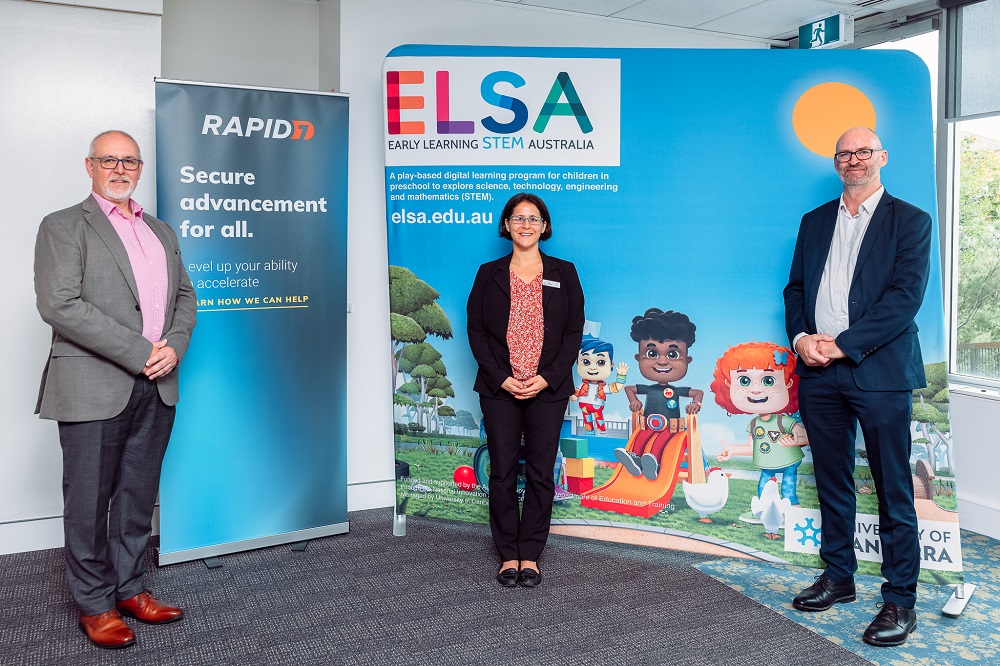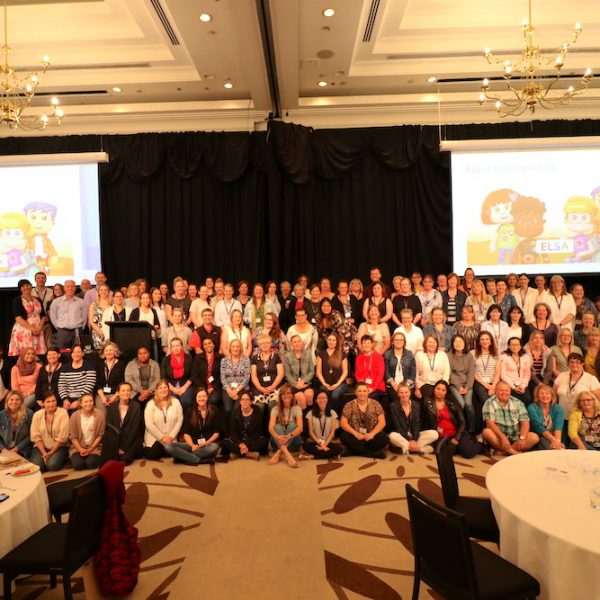Early Learning STEM project awarded $USD 100,000 for expansion

The University of Canberra’s Early Learning STEM Australia (ELSA) program will benefit from a recent injection of funding provided by the Rapid7GivesBack initiative.
Children in Canberra and New South Wales will benefit from the $USD100,000 ($AUD 129,143.91) donation, which comes via International IT security, data and analytics-software organisation, Rapid7.
ELSA is a project of the STEM Education Research Centre (SERC) and is designed to engage young learners in Science, Technology, Engineering and Mathematics (STEM) through play-based methods.
ELSA Director, Centenary Professor Thomas Lowrie, said the donation would support the program to extend beyond its current preschool confines into kindergarten classes, the first year of formal schooling in NSW and the ACT.
While Rapid7’s core business uses comprehensive real-time data collection, advanced correlation, and unique insight into attacker techniques to strengthen an enterprise’s ability to defend against cyber-attack, its core values extend to the philanthropic endeavours in the form of Rapid7GivesBack.
Rapid7 Sales Director Australia and New Zealand, Peter Owen, said the company was pleased to have found the ELSA, and the work it’s doing towards STEM achievement.
“We wanted to find an organisation we could partner with and sponsor. We looked across the country and the University of Canberra (UC) stood out head and shoulders above everybody,” he said.
“It was honestly night and day with what we saw from UC compared to the rest of the market, so it was a very easy choice for us.”
The ELSA program includes apps for learners to direct their own play while building capacity in spatial and logical reasoning in STEM. The apps then collect children’s STEM literacy data in a play-based way, on a scale not seen before in technology research.
Since its inception in 2018, more than 11,000 children across remote indigenous communities, regional towns and urban areas have taken part in ELSA’s technology-based education program, providing equal opportunity for Australian children to the pedagogically rich and technologically innovative initiative.
“Through this funding, we were able to develop the program and examine how we could address the cultural and contextual needs of children and teachers in both very large schools and in small schools with multi-age classrooms to determine how ELSA could work effectively in a broad range of contexts,” said Centenary Professor Lowrie.
Popular

Policy
Practice
Provider
Quality
NSW Government launches sweeping reforms to improve safety and transparency in early learning
2025-06-30 10:02:40
by Fiona Alston

Quality
Provider
Policy
Practice
WA approved provider fined $45,000 over bush excursion incident
2025-07-01 07:00:01
by Fiona Alston

Economics
Marketplace
Provider
The new AI powered feature making lives easier for families and service managers
2025-07-01 09:00:59
by Fiona Alston













